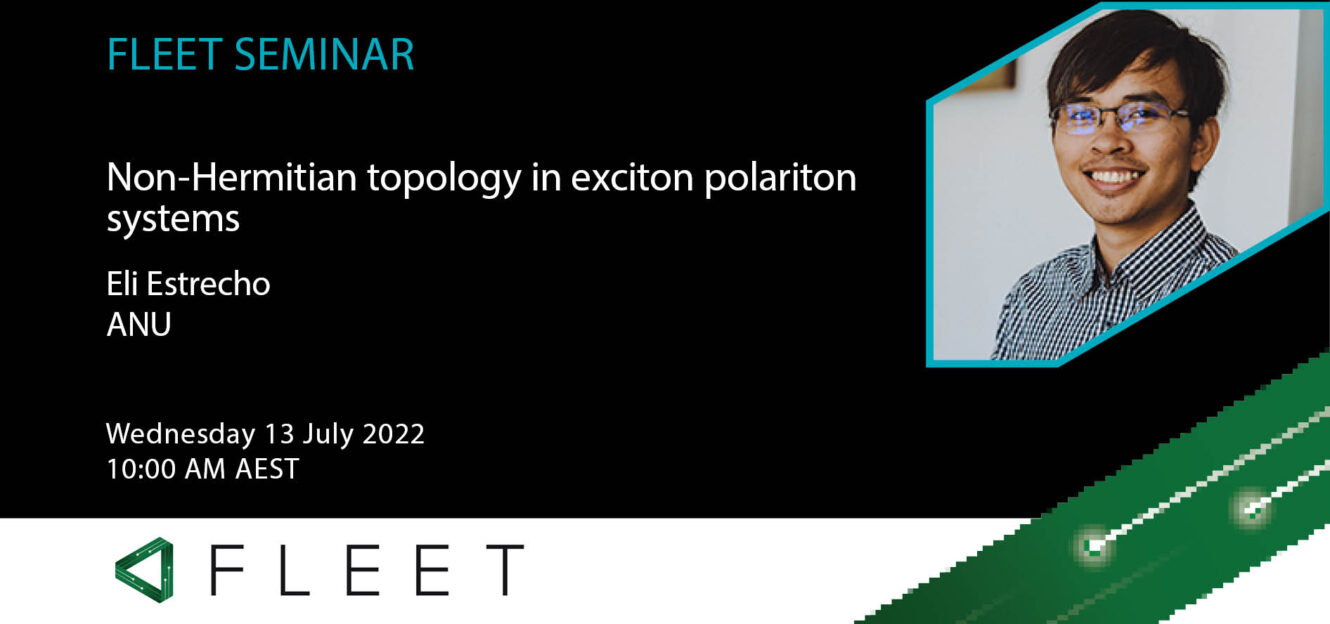-
13 Jul 2022
10:00 am - 11:00 am
Dr Eli Estrecho, FLEET research Fellow, Polariton BEC Group, Australian National University
Missed the talk? Catch-up on YouTube
Losses are known to be detrimental to devices but judiciously controlling them can lead to counterintuitive gains. For example, by increasing loss, lossy materials can become transparent or a lossy laser can turn on again. In this seminar, I will discuss our recent works on a novel phenomenon arising from loss, called non-Hermitian topology, using a hybrid light-matter system of exciton polaritons.
Exciton polaritons, quasiparticles arising from the strong coupling of excitons (bound electron-hole pair) in semiconductors and photons confined in a microcavity, provide an excellent platform for studying non-Hermitian quantum physics. These particles are inherently lossy due to the short lifetimes of their constituents and can form a macroscopic quantum state at room temperature with properties akin to Bose-Einstein condensates and superfluids, which are typically limited to cryogenic temperatures.
We study the energy and spin structure of anisotropic exciton polaritons based on lead-halide perovskites. Thanks to the interplay of spin-orbit coupling and the spin-dependent losses, exceptional points or non-Hermitian degeneracies appear in momentum space. These bring nontrivial topology to the system, which we directly measure and distinguished from the conventional notion of topology arising from the winding of the eigenfunctions. Our work paves the way for studying non-Hermitian topology and dynamics of quantum fluids of light.

